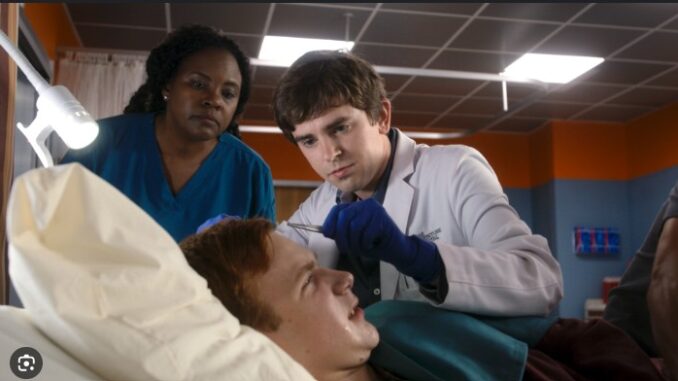
When The Good Doctor first premiered, audiences were introduced to Dr. Shaun Murphy, a young surgical resident with autism and savant syndrome. Portrayed by Freddie Highmore, Shaun immediately stood out—not just because of his extraordinary medical abilities, but because of the way he perceives and interacts with the world. One of the show’s most consistent and powerful themes has been Shaun’s ongoing struggle with communication, both in the operating room and in his personal life. This struggle is not portrayed as a weakness, but rather as a central aspect of his journey to prove that he deserves a place in the world of medicine.
In a profession where communication is vital, Shaun’s challenges often put him under scrutiny. Surgeons must reassure patients, explain complex procedures in understandable terms, and collaborate seamlessly with colleagues. Shaun’s difficulty in expressing himself clearly sometimes creates misunderstandings or tension. However, what makes his story so inspiring is the way he refuses to let these obstacles define him. Instead, he insists that his skills, his precision, and his dedication to saving lives should speak louder than any difference in the way he communicates.
The Importance of Communication in Medicine
Medicine is as much about people as it is about science. Doctors are expected to be calm, compassionate, and articulate. They must deliver devastating news with sensitivity and inspire trust in moments of fear. For Shaun, these expectations are daunting. His literal way of processing language, combined with his discomfort in social interactions, often makes conversations seem awkward or blunt.
For example, when Shaun tells a patient about a diagnosis, he may do so without the layers of empathy or softening words that most doctors naturally employ. To him, facts matter more than tone. While this can cause distress for patients and frustration for colleagues, it also highlights a fundamental question the series asks: should a doctor be judged more for how they speak, or for how well they perform their duties?
Shaun’s Unique Advantages
Although communication is an area of struggle, Shaun’s autism and savant abilities provide him with remarkable strengths. He has an exceptional memory, an ability to visualize complex anatomical structures, and a laser-like focus on solving medical puzzles. These skills often allow him to notice details that others miss, leading to diagnoses that save lives.
Yet what makes Shaun truly extraordinary is not just his medical genius, but his persistence. He constantly pushes himself to adapt, to learn the social nuances that do not come naturally to him. Each interaction becomes a small victory, a step toward proving that he is more than his condition.
The Role of Support
One of the reasons Shaun’s story resonates with so many viewers is because it also explores the role of support systems. From Dr. Aaron Glassman, who has been Shaun’s mentor and advocate since childhood, to his colleagues at San Jose St. Bonaventure Hospital, the people around him shape his journey. Not everyone believes in him at first—many doubt that someone with his communication challenges can succeed as a surgeon. But as time goes on, his dedication earns their respect.
Even when Shaun struggles to articulate his thoughts, his colleagues often learn to listen more carefully, to interpret his intentions beyond words. This two-way adjustment demonstrates that communication is not only Shaun’s burden to bear—it is also about the willingness of others to meet him halfway.
Breaking Stereotypes
By centering its narrative on a doctor with autism, The Good Doctor challenges stereotypes about what individuals with developmental conditions can achieve. Too often, society equates communication difficulties with a lack of intelligence or competence. Shaun defies this misconception. His brilliance is undeniable, and his struggles with speech or social cues do not diminish his capacity to heal.
Through Shaun’s story, the series urges viewers to reconsider what qualities truly make a great doctor. Is it eloquence? Charm? Or is it skill, dedication, and an unyielding commitment to saving lives?
Emotional Growth and Vulnerability
Beyond the hospital walls, Shaun’s struggle with communication also shapes his personal relationships. His interactions with friends and romantic partners reveal a man who wants deeply to connect, even when words fail him. The show delicately portrays his attempts to express love, frustration, or grief—emotions that can overwhelm him but that also prove his humanity.
In these moments, Shaun’s vulnerability shines through. While he may not always find the perfect words, his sincerity and honesty often resonate more than polished speeches. This emotional authenticity makes him relatable to viewers who have also felt misunderstood or out of place.
![Good Doctor's Jasika Nicole Reacts to [Spoiler], Reveals Meaningful Talk With Freddie Highmore About Closing Scene](https://media.zenfs.com/en/tvline.com/67c59d1304bbb67740208b0c99e37edb)
